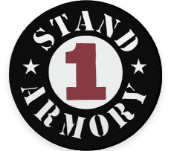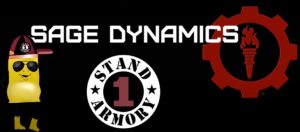A long time ago I was new at concealed carry. I had a new wife and a baby on the way and I knew that based on my beliefs, carrying a firearm defensively was not an option, it was an obligation. Therefore I bought my first pistol (Glock 26) and went through the sometimes frustrating process of learning how to use it. I had been to over 200 hours of professional training all over the country and had studied under the best gunfighters in the world by the time I entered my first shooting match. It was a local steel challenge match and as you might expect, I did terribly. Significantly worse than I anticipated. Now, to understand my journey, one must first understand me. My personality is such that when I lose, I don’t take it well. I am naturally very hard on myself. It’s somewhat of a character flaw. Perfection is always the goal in whatever I strive toward. Therefore, the choice I had was to either quit shooting, or get better at it and, because I knew I was going to carry a gun defensively, there was only one option for me. Get better.
As I began to develop a plan to get better, I discovered USPSA and learned that the title of “Grandmaster” (GM) was the highest label I could achieve in that sport. So I began my journey toward being classified as a GM. I began a dry fire regimen that consisted of reps upon reps of reloads, standard draws, surrender draws, single hand draws, and on and on it went. I got fast. Like, really freaking fast. I was consistently at .50 seconds on draw and Burkette Reloads. I was able to consistently produce a .70 turn and draw and, my six reload six from the turn and draw was down to 3.2 seconds. The speed was there. I was ready. I went to a local match ready to crush anything they put in front of me. “Shooter ready? Standby!…BEEP”. As I finished my first light speed run, I was sure that I had just broken some sort of local record. We went to score the targets and my self image was destroyed. Misses. Misses everywhere. That trend continued throughout the match and I was torn apart by shooters that I know I could beat. But I didn’t beat them, they beat me. Why? How? Whats more is, what did this mean about my ability as it pertained to defensive shooting? Is this how I would perform on the worst day of my life? Was that sort of performance what I should expect? Well, like I said earlier, I don’t lose well. So a fix was necessary. I got to work.
Without boring you with all the details of what followed, I’ll summarize my experience by saying there was struggle and defeat for a long time. I was burnt out. I decided to change the way I was practicing. I went from practicing reloads and draws to practicing for the match. I wasn’t losing because I was missing reloads or because I was slow to the first shot. I was losing because I wasn’t hitting the Alpha zone of the target. So I began to prioritize that as my goal. I became fixated on seeing what I needed to see to make a shot. It was all I worked on. B8 repair center targets soon became ninety percent of my practice regimen. I fought the mental demons that try and make you shoot when your sights aren’t ready. I felt confident I had made progress and went again to another match. I showed up completely focused on shooting as fast as I could see. I had made a deal with myself that I would not pull a trigger without seeing my dot settle to the center of every target. I shot my first GM level classifier that night. I was blown away at how slow it felt. This was the night I learned to believe that when I see what I need to see, I tend to be faster AND more accurate than when I rush and hurry. It changed my shooting life. I looked at everything differently after that. I would go on to achieve the Grandmaster status in four matches. It was amazing.
This entire experience shaped how I think about defensive shooting as well. Should you be as fast as possible? In most all cases, yes. Should you strive to master technical skill and mechanics? Yes. All of these things matter, and in some instances they matter a lot. However, what matters even more that all of those things combined is choosing to hit the target. The primary objective of firing the gun whether it be defensively or competitively is to hit what you’re aiming at. Being able to hit the target is not enough though, you must choose it. It must be priority. Hitting has to become your hearts desire in order for you to succeed. Work speed for sure. Work mechanics and you’ll develop speed. Realize though if you gain all that but you still miss, it’s all in vain. Learn what it takes to hit. Then force it on yourself. Visit that place often. Shoot at things that are hard to hit, so you’ll find out what it takes. Then choose that every time.
In closing, I always like to think that competitive shooting made me better at defensive shooting by showing me that being fast was not enough. You must hit and to do that takes a level of mental discipline that most shooters do not possess yet. There is a special thing that happens when a person chooses to forego a par time to get the hits required for an exercise. That person has arrived at the level of maturity required to reach mastery, and they will soon achieve it. Stand One Armory 147gr Chubbies are my ammo of choice due to the high quality control they apply and the accuracy those loads are capable of. If you’re interested in trying out competitive shooting in order to see what it can teach you, pick up a case of Chubbies and get to work. Doing so might just change everything for you.
Mark Smith
JBS Training Group



